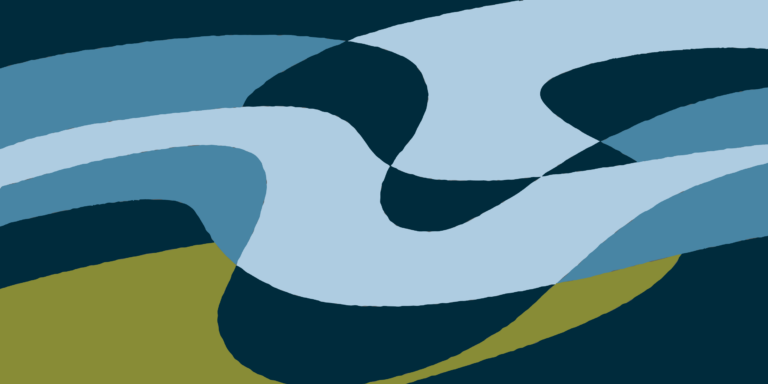
From the desk of Angie Gustafson:
On October 13, four days after Indigenous Peoples Day, Neuger staff honored the holiday by visiting an exhibit titled Mdewakanton: Dwellers of the Spirit Lake. This high-quality exhibit is presented by the Shakopee Mdewakanton Sioux Community at their cultural center, Hoċokata Ti.
We were guided through the exhibit by Michael (Taṡuŋka Opi), a cultural interpreter. The tour encompassed a wealth of information and an immersive experience, recounting the centuries-long Dakota history in Minnesota. We learned creation stories, stepped into a bark house, huddled in a teepee, examined beaded garments and carved tools, surveyed broken treaty maps, and listened to accounts of good times and hard times, repression and renewal.
Michael showed us, through an interactive diagram, how Dakota people refer to their family members: how the word for mother (Ina) is the same word for aunt, and the word for son (Ciŋkŝi), is the same word for nephew. Mitakuye Owas’iƞ – all are related – is a common Dakota expression for the interconnectedness of kinship, of humanity, of all existence.

The Importance of Relationships
Previous to joining the Neuger team, I worked for several years as a librarian. After changing careers, I was curious to find out what makes a business like this thrive and how it operates differently from the public service sector I came from. What I have found are more similarities than differences.
What makes any organization in any sector thrive are relationships. Relationships within our team, with our clients and partners, and with our community. When we take care of these relationships, treating each other with respect and honor, we thrive as individuals and as a business.
Honoring Our Relations
It is difficult, yet crucial, to learn of ways that people seeking power and land chose neither to recognize nor honor their Dakota neighbors as relations. Concentration camps, mass execution and genocide are not concepts we typically associate with Minnesota, but these are all atrocities that were committed against the Dakota people in this state during and after the US-Dakota War of 1862. Only a small remnant of Dakota families remained, and it has been a very long, slow process of recovery ever since.
For me, acknowledging Mitakuye Owas’iƞ is two-fold. I must recognize that although I am five generations removed from 1862, I am still complicit in the harm that was done, and a direct beneficiary of the land that was stolen. My great-great-grandfather was one of the white settlers who farmed in western Minnesota following the war, and that land remained in my family until just two years ago. My financial stability today, and my access to all the rights and resources that this state provides, were illegally and unethically gained.
Yet the words still sound like invitation and promise to me. Just as we are connected to our past, we are also a bridge to the future. Indigenous communities, such as the Shakopee Mdewakanton Sioux Community, offer opportunities for education and connection. In spite of all that’s passed, they still share the message of Mitakuye Owas’iƞ. I have the opportunity to accept this message and engage in the reparation of a broken relationship and the restoration of land and resources. As individuals, as businesses, as communities, we all have this opportunity.
Explore Further
- Read more about Dakota history
- Visit Mdewakanton: Dwellers of the Spirit Lake
- Contribute to Makoce Ikikcupi, a land recovery project
- Learn about the latest land recovery news